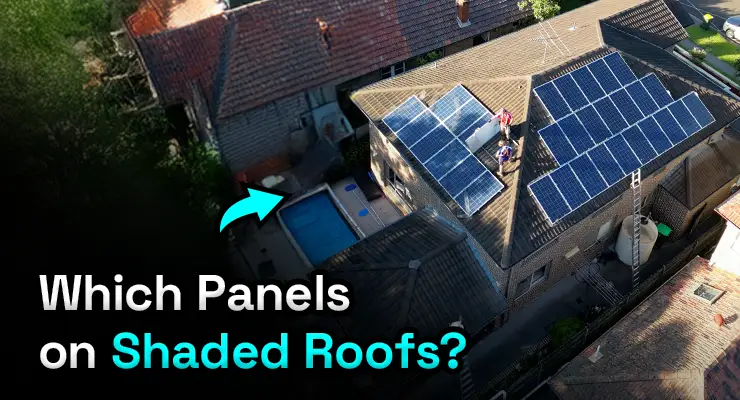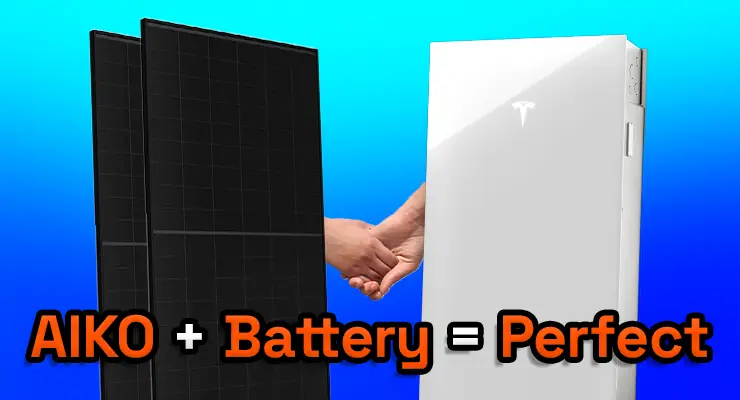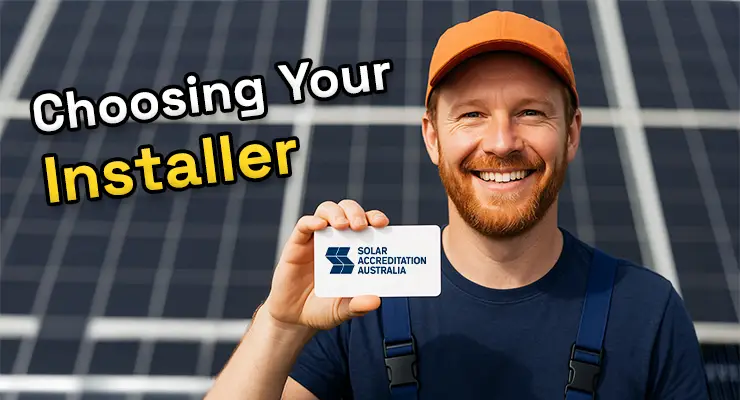
Fast read
Home and business insurance policies can cover damage to solar systems. So it is recommended to add it as an asset to your home or contents insurance policy or building insurance policy after installation. Solar panels are considered a permanent building fixture by insurers.
Adding your solar panel system to your insurance policy simplifies the claims process and protects your valuable investment. However, some types of damage to solar systems are not covered by insurance. This includes performance-related issues, which fall under the performance warranty provided by the solar panel manufacturer.
Will my home insurance cover any damage to my solar panels?
Individuals and society are becoming increasingly aware of the environmental damage they impose via fossil fuels. For example, Australians have controlled their destiny by installing more solar panels on rooftops. Because of the relatively significant upfront expense involved in purchasing solar and battery systems, some homeowners and commercial solar owners worry about potential damages to this asset and whether their home insurance will provide coverage.
Whether by someone throwing something heavy onto the panels and breaking them or through a strong storm or hail.
Will your home insurance cover your solar system?
Your home/business insurance can cover damage to your solar system. Experts recommend adding it as an asset to your home and contents insurance or building insurance policy soon after installation.
Insurers classify solar panels as permanent building fixtures, making them eligible for coverage under your home insurance policy. Including your solar system in your home insurance or directly informing your insurance company about the installation holds numerous advantages, ensuring proper coverage and documentation for your solar investment.
Not only are you protecting your valuable investment. But you are simplifying the claims process should you need to go down that track, for example, by taking photos of your system and storing these images with the PV installer paperwork and warranties in a safe place. You will have the necessary information to undertake a claim in years to come.
Added solar panels to your home insurance policy shouldn’t dramatically increase your premiums, and some home insurance companies do not increase their premium at all, as long as the additional value of the solar & battery system is covered in the overall insured value.

What damage is not covered?
Home insurance policies might not cover certain types of damage to solar panels. For example, it is unlikely that performance-related issues are covered, like if your solar panels are not working to their advertised power output. Then this will fall under the performance warranty provided by the solar panel manufacturer.
Although solar panel performance warranties are extremely difficult to contest, this is because proving the panels’ deterioration via specific testing can be more expensive than the remaining value of the panel.
If your solar system has physical or electrical issues, such as hot spots, delamination, or water ingress, your manufacturer’s product warranty could cover you in some instances. But if these damages have occurred because of poor installation practices. Such as not complying with the manufacturer’s specified clamp zones, the claim needs to go against the installation company. Your home insurance is not likely to cover the cost of such instances.
Home insurance doesn’t cover the typical wear and tear that solar panels, inverters, home storage batteries, and associated fixtures experience over their lifetime. This is why it is best to take what steps you can to ensure that your panels are not susceptible to leaves, branches, and excess dust sitting on them for a prolonged time.
Batteries can be straightforward if you choose a quality solar installer
If something happens because of a lightning strike, that’s when you might make a valid insurance claim. But for other issues, like faults or problems, it’s usually about using the warranty claim to get things fixed.
So, in most cases, if there’s an issue with the battery, you’ll work with the warranty rather than making an insurance claim. Having a guarantee to fix things if they go wrong is like insurance, except for when a lightning strike occurs, and that’s when home insurance might come in.

Fraud is not a good alternative to buying cheap solar
In some solar systems, people using incredibly cheap string inverters have had problems, and some say these issues are because of lightning strikes. When you choose these super cheap inverters, they might seem like a good deal at first, but there have been cases where they didn’t work well, especially during lightning.
If the inverters are not good quality, they might not handle lightning strikes properly. This can lead to malfunctions and problems with your solar system. So, it’s important to think about the quality of the inverter you choose, even if it costs a bit more in the beginning.
People have reported issues where the cheap inverters had problems, and they thought it was because of lightning. To avoid these kinds of troubles, it’s a good idea to pick inverters that are a bit more expensive but come with better protection features. This might cost a little more upfront, but in the long run, it can save you from having to fix or replace things often.
When you’re setting up your solar energy system, it’s smart to think carefully about the quality of each part, especially the string inverter. This way, you can make sure your solar setup works well, and you won’t have to worry too much about problems related to lightning or other issues.


